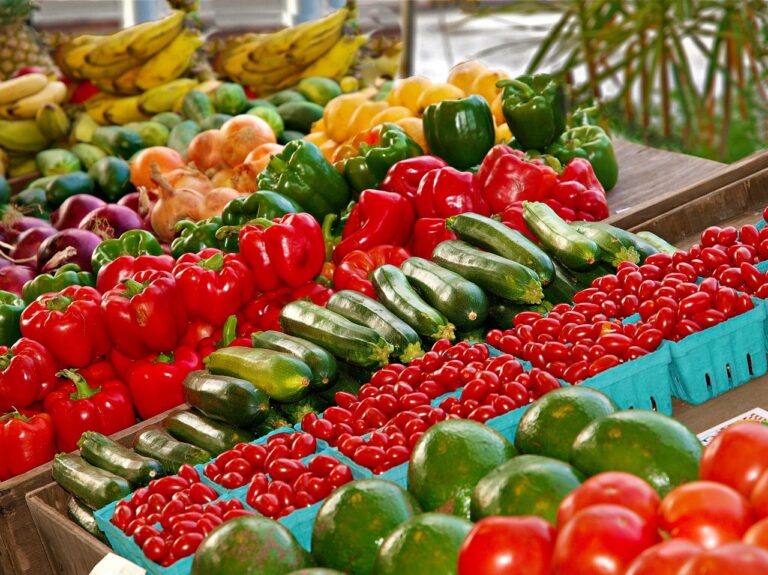Community Gardens and Urban Agriculture: Promoting Food Access and Environmental Stewardship
Community gardens offer a range of benefits that extend beyond just providing fresh produce. They serve as valuable spaces for social interaction and community building. By working together to maintain the garden, residents have the opportunity to foster relationships, share knowledge, and create a stronger sense of belonging within their neighborhood.
In addition to the social aspect, community gardens also play a crucial role in promoting physical and mental well-being. Engaging in gardening activities has been shown to reduce stress, improve mood, and increase physical activity. Furthermore, having access to fresh fruits and vegetables can contribute to a healthier diet, ultimately leading to better overall health outcomes for individuals involved in community gardening initiatives.
The Impact of Urban Agriculture on Food Security
Urban agriculture plays a crucial role in ensuring food security within cities and urban areas. By cultivating fruits, vegetables, and herbs locally, communities can increase access to fresh produce and reduce reliance on commercially grown products. This, in turn, helps to combat issues of food deserts and inadequate access to nutritious foods, especially in low-income neighborhoods.
In addition to providing an immediate source of fresh produce, urban agriculture also promotes community engagement and education around food production. By participating in growing their own fruits and vegetables, individuals develop a greater understanding and appreciation for the food they consume. This hands-on approach to agriculture not only fosters a sense of self-sufficiency but also encourages healthier eating habits among community members.
Promoting Sustainable Agriculture Practices in Urban Areas
Sustainable agriculture practices in urban areas have become increasingly vital in promoting environmental sustainability and food security. Urban agriculture provides an opportunity for communities to grow their own fresh produce and reduce their reliance on imported goods. By utilizing existing spaces such as rooftops, vacant lots, and community gardens, urban dwellers can actively participate in local food production while also fostering community engagement.
Additionally, promoting sustainable agriculture practices in urban areas can help reduce the carbon footprint associated with transporting food long distances. By growing food locally, cities can decrease greenhouse gas emissions and lessen the strain on the environment. Implementing practices like composting, water conservation, and integrated pest management in urban agriculture can further contribute to creating a more sustainable and resilient food system for urban populations.
What are some benefits of community gardens in urban areas?
Community gardens provide access to fresh produce, serve as a gathering place for neighbors, promote environmental sustainability, and can help improve food security in urban communities.
How does urban agriculture impact food security?
Urban agriculture can help increase access to fresh, healthy food for residents in food deserts or areas with limited grocery options. By growing food locally, urban agriculture can also reduce dependency on long-distance food transportation.
What are some sustainable agriculture practices that can be promoted in urban areas?
Some sustainable agriculture practices that can be promoted in urban areas include composting, rainwater harvesting, organic gardening, and using natural pest control methods. These practices help reduce waste, conserve water, and minimize the use of harmful chemicals in food production.







